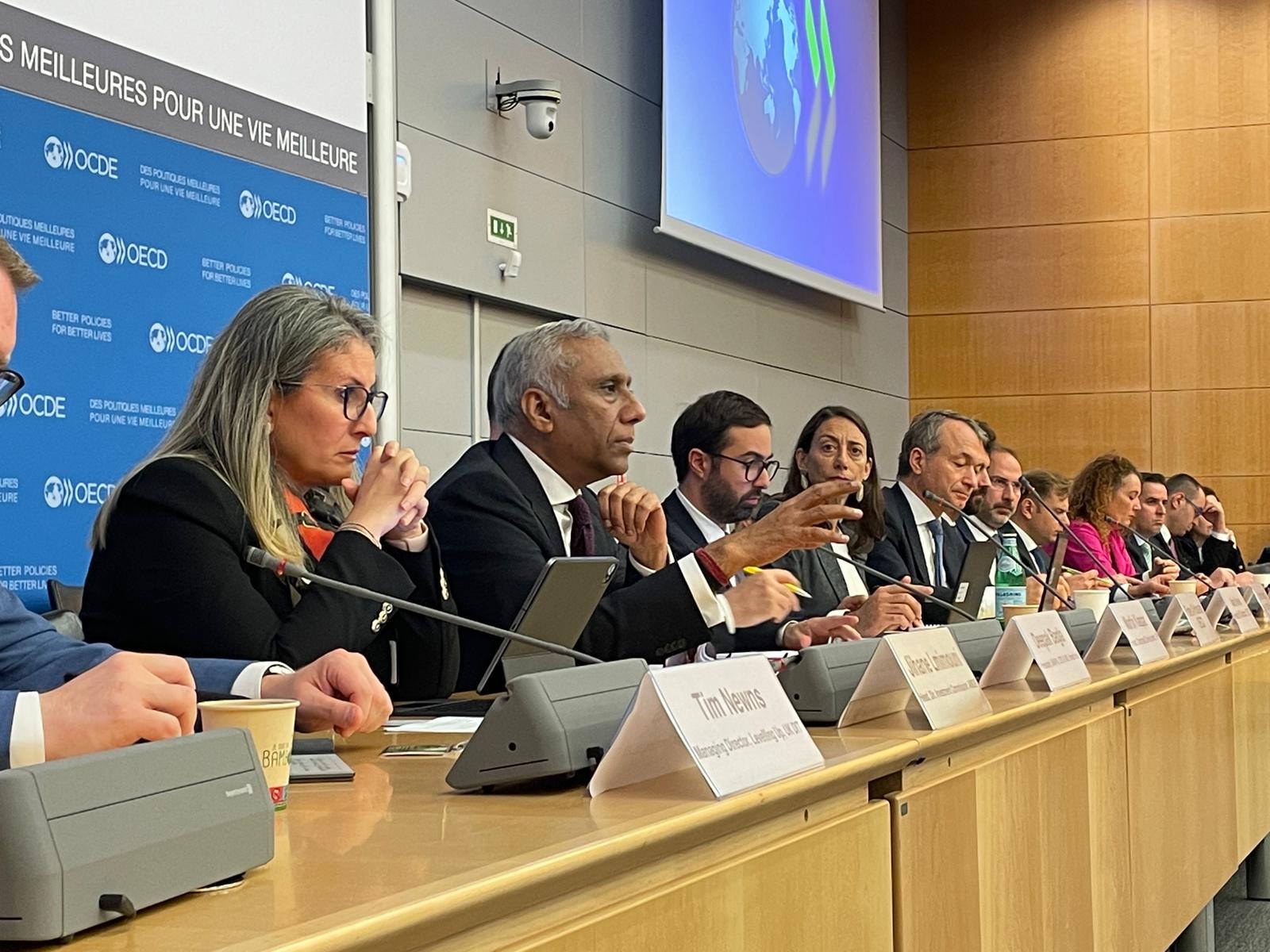OECD, a consultative Committee member of WAIPA, organised their first in person Investment Week after a gap pf 3 years during 17-18 of October 2022. The event was attended by delegates and policy makers from around the world.
WAIPA President Mr. Deepak Bagla and Executive Director (a.i.) Mr. Ismail Ersahin, were invited to join in-depth policy conversations with other distinguished leaders in investment policy making.
Starting with the OECD IPA Network Meeting on 17 October, Mr. Bagla addressed a session on “Role, Perspective and Experience of IPAs” which focussed on IPAs and regionalisation, a key issue for sustainable recovery. The aim of this session was to hold evidence-based discussions and peer-learning exchanges on current challenges and opportunities related to FDI, regional development and sustainability.
This workshop also discussed how FDI can support regional development with perspectives from IPAs and other stakeholders. Mr. Bagla stressed upon the importance of the digitization and democratization.
“For me the best form of democratization is digitization. When we are going through this digital transition there are a large number of investors who are looking for sustainable projects but they are not there. That’s why at WAIPA we are now creating a digital platform so that each of our member can have an access to investment, access to best practices and trading. This will give any investor an access to the opportunites which are being open. So they can come on to that, look at it and invest in it directly.” he said.
Tuesday’s Roundtable on Investment and Sustainable Development moved the conversation on sustainable investment forward by focussing on concrete actions.
The 5th OECD Roundtable on Investment and Sustainable Development was held on 18th October 2022. High-level policymakers and executives from the private sector shared their perspectives on key opportunities and bottlenecks to sustainable investment in their economies and sectors.
Mr. Bagla highlighted that “SDGs are transformational and directional. Among other things they help with strategies and commitments. Challenges remain however on how to measure and interlink. Getting the right data in place, convincing their governments that linkages need to be made with national development priorities. The whole responsible business conduct agenda becomes increasingly important. Particularly also on how IPAs are using this agenda to simulate more investment and delivers benefits for the host country”.
This session furthermore withnessed discussions from senior officials from international organisations coordinated under WIDA. They discussed how their organisations support governments and the private sector in unlocking opportunities and addressing challenges to quality investments.
Mr. Bagla and Mr. Ersahin also held numerous bilateral meetings with international organizations and IPAs to collaborate on strategies to promote investment and exchange learnings.


